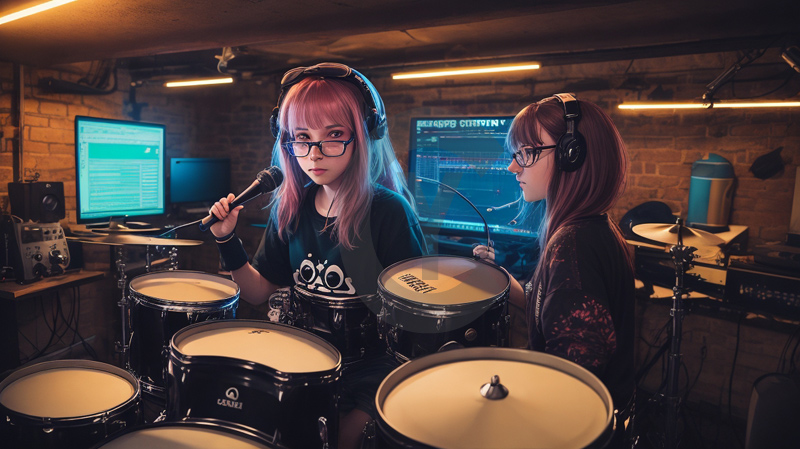
How to Record Your Own Music as a Newcomer
How to Record Your Own Music as a Newcomer
Recording your own music can be a daunting task, but it's also a rewarding one. With a little planning and preparation, you can create professional-sounding recordings in your own home.

What you need
The basic equipment you'll need to record your own music includes:
A computer with a DAW (digital audio workstation) software
A microphone
An audio interface
Headphones or speakers
A computer with a DAW
A DAW is a software program that allows you to record, edit, and mix your audio. There are many different DAWs available, so it's important to do your research to find one that's right for you. Some popular DAWs include Logic Pro, Ableton Live, and Pro Tools.
A microphone
A microphone is essential for recording vocals and instruments. There are many different types of microphones available, so it's important to choose one that's right for the sound you're going for. Some popular types of microphones for recording music include condenser microphones, dynamic microphones, and ribbon microphones.
An audio interface
An audio interface is a device that connects your microphone and other audio equipment to your computer. It's important to choose an audio interface that has enough inputs and outputs for your needs. Some popular audio interfaces include the Focusrite Scarlett 2i2, the PreSonus Studio 24c, and the Audient iD4.
Headphones or speakers
Headphones or speakers are essential for monitoring your recordings. It's important to choose headphones or speakers that provide accurate sound reproduction.
Cost
The cost of recording your own music can vary depending on the quality of the equipment you choose. You can get started with a basic setup for around $500. A more professional setup can cost several thousand dollars.
Recording your music
Once you have your equipment, you're ready to start recording your music. The basic steps for recording your own music are as follows:
Set up your equipment
Make sure your computer, DAW, microphone, audio interface, and headphones or speakers are all properly connected.
Prepare your tracks
If you're recording vocals, practice your lyrics and melodies. If you're recording instruments, practice your parts.
Start recording
Use the record button in your DAW to start recording your tracks.
Listen back to your recordings
Once you've finished recording a track, listen back to it and make any necessary adjustments.
Repeat steps 3 and 4
Repeat steps 3 and 4 for each track you want to record.
Mix and master your tracks
Once you've recorded all of your tracks, you need to mix and master them. Mixing is the process of balancing the levels of each track. Mastering is the process of giving your tracks a professional sound.
Tips for recording your own music
Here are a few tips for recording your own music:
Take your time
Don't try to rush through the recording process. Take your time and make sure you're happy with the results.
Experiment
Don't be afraid to experiment with different sounds and techniques. The best way to learn is by trying new things.
Get feedback
Once you've finished recording your music, get feedback from friends, family, or other musicians. This feedback can help you identify areas where you can improve.
Conclusion
Recording your own music can be a rewarding experience. With a little planning and preparation, you can create professional-sounding recordings in your own home.
Posted by November 15th, 2023
Comment
